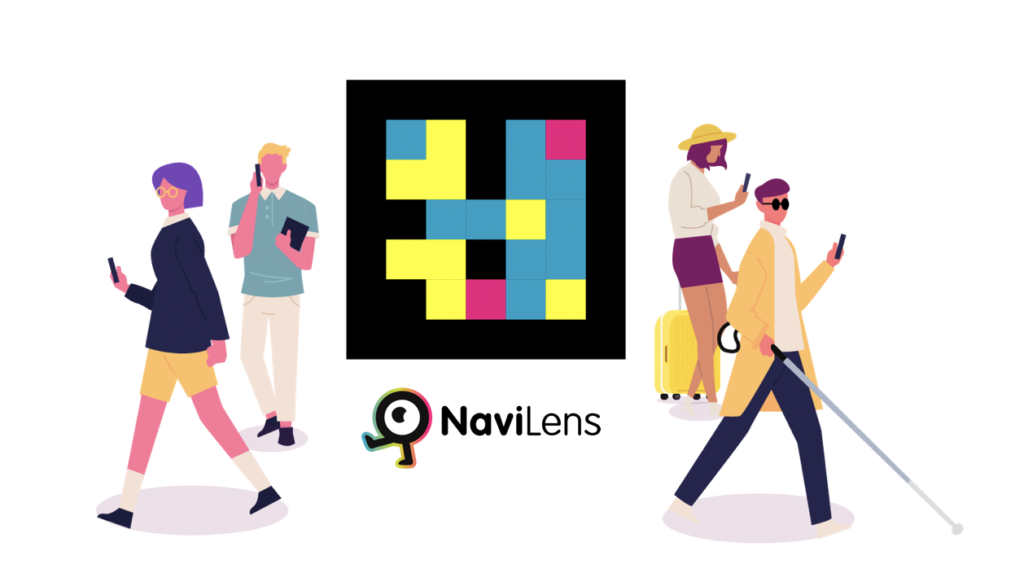NaviLens is an innovative navigation and labeling app specifically designed for people with visual impairments. By scanning the special tags generated by the systems, the users are able to get audio information on positioning and route guidance, empowering them to find their ways quickly and effectively.
Features
As an innovative navigation solution, NaviLens includes various essential features to its target audience, the people with visual impairments.

- Fast reading: It only takes about 1/30 seconds to read the tag;
- Scan in long distance: Tags can be scanned from 12 meters, which is 12 times farther than regular QR code;
- Unfocused: No focus is needed;
- Precise detection: Tags can be detected when the user is in motion while the cell phone is pointing up. It also provides the wide angle reading up to 160 °;
- Compatibility: NaviLens works on both the Android and Apple operating systems;
- Sound system: information can be read aloud and no headphones are needed.
It empowers people with visual impairment
In order to help people with visual impairment with wayfinding, two functions should be supported: positioning (to locate a person’s position) and path guidance. NaviLens did overcome the functional solutions model of disability and make these functions accessible to its users. All the users need to do is to scan the NaviLens tag through the app and they will get the audio information of their location and possible routes in seconds. The capability of scanning the tag in long distance and no focus needed are both essential features for people with visual impairment. Besides route guidance, it also provides the information like train arrival or bus arrival to make the transit experience of the visual impaired easier. Another great functionality NaviLens is the language setting. It breaks the language barrier with 33 languages available on the app, making it accessible to users from different countries and backgrounds.
It helps creates more inclusive cities
There are approximately 39 million people who are blind in the world with another 246 million people with some form of visual impairment. One significant challenge these people are facing is wayfinding, which refers to finding one’s way a destination in an unfamiliar or complex environment. Even though today they can get assistance through GPS apps, GPS signals often work well outdoors, not in indoor environments. Therefore, the difficulty of wayfinding has limits people with visual impairment in their daily life, making them dependent on others and feel exclusive in some situations. However, with the help of NaviLens, people with visual impairments are able to easily interact with various environments, no matter indoor or outdoor. They don’t have to rely on others’ help. Instead, they can find their ways through the app even in complex environments like subway and train station. That way they have more control on their mobility, feeling less stressed. Aligning with the social model, NaviLens makes both people with visual impairment and the cities more inclusive.
